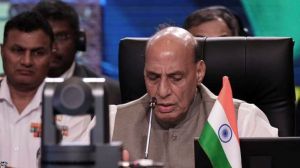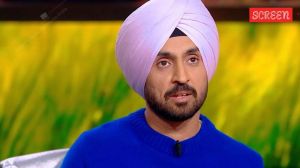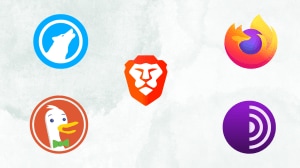Anonna Dutt is a Principal Correspondent who writes primarily on health at the Indian Express. She reports on myriad topics ranging from the growing burden of non-communicable diseases such as diabetes and hypertension to the problems with pervasive infectious conditions. She reported on the government’s management of the Covid-19 pandemic and closely followed the vaccination programme. Her stories have resulted in the city government investing in high-end tests for the poor and acknowledging errors in their official reports. Dutt also takes a keen interest in the country’s space programme and has written on key missions like Chandrayaan 2 and 3, Aditya L1, and Gaganyaan. She was among the first batch of eleven media fellows with RBM Partnership to End Malaria. She was also selected to participate in the short-term programme on early childhood reporting at Columbia University’s Dart Centre. Dutt has a Bachelor’s Degree from the Symbiosis Institute of Media and Communication, Pune and a PG Diploma from the Asian College of Journalism, Chennai. She started her reporting career with the Hindustan Times. When not at work, she tries to appease the Duolingo owl with her French skills and sometimes takes to the dance floor. ... Read More
Why did Govt ban 156 combination drugs used to treat fever, pain and allergies? Here’s all you need to know
Find out what the order means for manufacturing, stocking and sale of existing medicines
 Among the banned drugs are several combinations of enzymes used for the treatment of gastrointestinal problems, combinations of anti-allergic medicines and combinations used for the treatment of skin conditions. (Representational image/File)
Among the banned drugs are several combinations of enzymes used for the treatment of gastrointestinal problems, combinations of anti-allergic medicines and combinations used for the treatment of skin conditions. (Representational image/File)If you’ve been taking a combination drug that promises to address your fever, aches and allergies together, they may not be too effective. That’s why the government earlier this week banned 156 of these fixed dose combination medicines — those that contain a cocktail of active ingredients — including popular fever medicine such as Cheston Cold and pain medicine such as Foracet.
Terming the combinations as irrational and without any therapeutic benefit, the Health Ministry banned these medicines with immediate effect through a notification.
What are some of the drugs that have been banned?
Among the banned drugs are several combinations of enzymes used for the treatment of gastrointestinal problems, combinations of anti-allergic medicines and combinations used for the treatment of skin conditions.
Among the banned drugs are the popularly used combinations of anti-allergic medicines such as levocetirizine with nasal decongestant, syrups that break down mucus, and paracetamol. The list also included combinations of antibiotics with acne cream or with iodine solution.
Combination of supplements include menthol with aloe vera; aloe vera with vitamin E in the form of a medicated soap; burn medicine silver sulfadiazine with an antiseptic agent, aloe extract, and vitamin; and calamine lotion with aloe and a natural substance to treat skin irritation.
The list also includes a combination of migraine medicines with one to prevent nausea, a combination of mefenamic acid — usually used for menstrual cramps — with the common anti-fibrotic medicine tranexamic acid, and an active ingredient in Viagra- Sildenafil with a drug that relaxes blood vessels and muscles.
What are fixed dose combinations?
Fixed dose combinations are medicines that have two or more active ingredients in a single pill, capsule or shot. Such combination medicines help patients with illnesses such as tuberculosis and diabetes consume fewer pills, but they also end up delivering ingredients to patients that they may not need.
Why is the government banning these fixed dose combinations?
These medicines were banned by the government because they either contain ingredients that do not work well together or those that are not needed by patients to be commonly taken together.
Most of the drugs that are now being banned were approved by various state licensing authorities without any trial for combinations because the ingredients were individually approved. “The new drugs and clinical trial rules of 2019 make it clear that fixed dose combinations are to be considered as new drugs and as such have to be approved by the central drug regulator. This has helped in bringing down the number of these irrational combinations available in the market,” said a senior Health Ministry official.
What will happen to the drugs in the market?
While the government notification states that companies manufacturing these 156 drugs immediately stop manufacturing, stocking, and sale of these medicines, it is likely to be available in the country for a while. “We have seen that the companies usually go to the court after such an order and the court allows them to sell off the stock that is already in the market,” the official said.






- 01
- 02
- 03
- 04
- 05


























